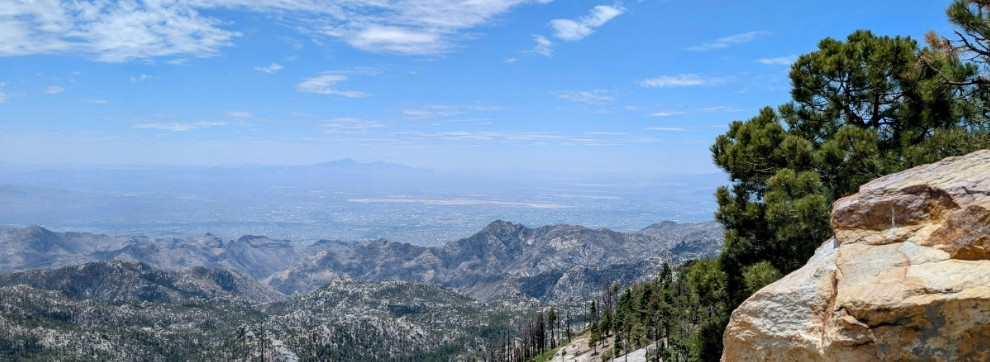1. Ahadith (narrations) of the Prophet ﷺ (peace be upon him):
قال النبي –صلى الله عليه وسلم-( مامن أيام العمل الصالح فيها أحب إلى الله من هذه الأيام قالوا يا رسول الله : ولا الجهاد في سبيل الله قال ولا الجهاد في سبيل الله إلا رجل خرج بنفسه وماله فلم يرجع من ذلك بشئ) رواه البخاري
The Prophet ﷺ said: “There are no days in which good deeds are more beloved to Allah than during these days. The Sahaba said: O Rasul Allah [Messenger of God], not even jihad in the path of Allah? He ﷺ said: Not even jihad in the path of Allah except for the man who goes out in the path of Allah with his life and his wealth and returns with neither of them.”
وقال ( أفضل أيام الدنيا أيام العشر) رواه البزار وصححه الالبانى.
And he ﷺ said: “The best days of this world are these ten.”
2. Allah swears by these 10 days in the Qur’an:
قول الله تعالى: سورة الفجر (1-2)، قال ابن كثير رحمه الله: المراد بها عشر ذي الحجة
Allah subhanahu wa ta`ala (exalted is He) says: “By the dawn, and by the 10 nights,” [Qur’an, 89:1-2]. Ibn ‘Abbas, Ibn al-Zubayr, Mujahid and others of the earlier and later generations said that this refers to the first ten days of Dhul Hijjah. Ibn Katheer said: “This is the correct opinion.”
قال تعالى: سورة الحج(28)، قال ابن عباس: أيام العشر
Allah says: “…and mention the name of Allah on appointed days,” [Qur’an, 22:28]. Ibn ‘Abbas said these are the ten days.
3. These ten days are better than Ramadan:
قال المحققون من أهل العلم: أيام عشر ذي الحجة أفضل الأيام، وليالي العشر الأواخر من رمضان أفضل الليالي.
Most scholars adopt the opinion that these days are better than the last ten days of Ramadan. However, what holds the last ten days of Ramadan at a higher status is the Night of Power (Laylat ul-Qadr) which is equivalent to one thousand months (83.33 years).
تضاعف فيها الحسنات قال ابن عباس”: العمل فيهن بسبعمائة ضعف”
The rewards are multiplied in these days. Ibn ‘Abbas said: “(The reward for good) deeds are multiplied seven hundred times in these days.”
قال الاوزاعى: “بلغني أن العمل في أيام العشر كقدر غزوة في سبيل الله يصام نهارها ويحرس ليلها إلا أن يختص امرء بشهادة”
Al Awzaa’i said: “I was informed that good deeds during the ten days are the equivalent (in reward) to a battle in the path of Allah, in which the day is spent in fasting and the night in safeguarding, except if one is bestowed with martyrdom.”
In Ramadan, doing good deeds and struggling in worship, especially during the last ten nights, is easier than during these days for a few reasons. Firstly, the atmosphere of the month of Ramadan, whether culturally, spiritually, or traditionally, makes it easier to focus and strive. Secondly, the shayateen (devils) are chained. So, to get that drive and direction we had in Ramadan is much harder when we have most likely fallen out of “Ramadan mode.” However, since the `ibada (worship) is more difficult, the reward is greater. So let’s keep this in mind and get ready to really work hard.
The Plan of Action for these 10 days:
1. Really feel this blessing and realize that it is an opportunity of a lifetime, because none of us know if we will witness these 10 days again.
كان خالد بن معدان يقول( إذا فتح لأحدكم باب للخير فليسرع فاءنه لا يدرى متى يغلق عنه
Khalid bin Mi`dan used to say: “If the door for good is opened for one of you, then rush (to take advantage) because you don’t know when it will close.”
2. Have high aspirations in your worship and use the examples of the ijtihad (diligence) of the saliheen (righteous) as motivation.
3. Take advantage of the opportunities to get the reward of Hajj (pilgrimage to Mecca) while being elsewhere.
قال-صلى الله عليه وسلم-( من صلى الفجر في جماعة ثم قعد يذكر الله حتى تطلع الشمس ثم صلى ركعتين كانت له كأجر حجة وعمرة تامة تامة تامة
The Prophet ﷺ said: “Whoever prays fajr [the pre-dawn prayer] in congregation and then sits in remembrance of Allah until the sun rises, then prays two rak`aat [units of prayer], he has the full reward of Hajj and `umrah (the lesser pilgrimage).”
4. Perfect the fara’idh (obligatory actions):
Often times we become busy trying to do extra deeds, but neglect the fact that perhaps maybe what is obligatory upon us is not at the level it should be. There is no way for a person to become close to Allah (swt) other than through the obligatory actions, as is apparent in the famous hadith qudsi (sacred narration) in which Allah (swt) says: “My servant does not become closer to me by anything more beloved to me than what I have obligated upon him.”
Reasonable Goals:
1. Khatm (Complete Recitation) of Qur’an:
It is equivalent to more than half a million hasanaat (good deeds) during these days. Let’s try to complete the recitation of the Qur’an during these days, ending by `Asr (the afternoon prayer) time on the day of `Arafah (the ninth day of Dhul-Hijjah) and spending from `Asr to Magrhib (the post-sunset prayer) in du`a’ (supplication).
2. Qiyam al-Layl (Late Night Prayer):
Rasulallah (the Messenger of God) ﷺ said: “Whoever stands in prayer, reciting 1,000 verses, is written among the muqantareen.” A qintar (the root of muqantareen) is equal to 70,000 dinar. The recitation of the last two ajzaa’ (parts) of the Qur’an is equivalent to 1,000 verses.
3. Extra Salah (Prayer) During the Day:
The Prophet ﷺ said: “There is not a Muslim who prays twelve rak`aat per day, other than the obligatory prayers, except that a palace is built for him in paradise.”
4. Dhikr: The best form of worship to do in these ten days as apparent in the hadith (narration):
Ibn `Umar said that the Messenger of Allah ﷺ said, “There is no day more honorable in Allah ‘s sight and no acts more beloved therein to Allah than those in these ten days. So say tahlil [‘There is no deity worthy of worship but Allah: La ilaha illAllah‘], takbir [‘Allah is the greatest: Allahu akbar‘] and tahmid [‘All praise is due to Allah: alhumdulillah‘] a lot.” [Ahmad, 7/224]
The Messenger of Allah ﷺ said, “The best du`a’ is du`a’ on the day of `Arafah, and the best thing that I or the Prophets before me have said is ‘There is no god but Allah, alone, without any partner’ [La ilaha illa’llah, wahdahu la sharika lah].” [Muwatta, Malik].
7. Reviving the Sunnah of Takbir [‘Allahu Akbar‘]:
Ibn `Umar and Abu Hurairah radi allahu `anhu (may God be pleases with him) used to go out in the marketplace during the first ten days of Dhul-Hijjah, reciting takbir, and the people would recite takbir when they heard them.
8. Fasting:
The reward of fasting is great, so imagine how much that reward would be multiplied in these days. If one can’t fast all of the 9 days, then at least on the day of `Arafah as it is the greatest day.
Abu Qatadah reported that the Messenger of Allah ﷺ said, “Fasting on the day of ‘Arafah is an expiation for two years, the year preceding it and the year following it. Fasting the day of `Ashura is an expiation for the year preceding it.” [This is related by “the group,” except for al-Bukhari and at-Tirmidhi.]
The Prophet ﷺ said “There is no day that Allah will free people more than the day of `Arafah.”
`Ali (ra) used to advise people to say, “O Allah, free my neck from the fire,” on the day of `Arafah.
9. Du`a’:
Especially on the day of `Arafah, but also at anytime. Keep in mind the times where du`a’ is more likely to be accepted and ask during those times.
-
- The last third of the night
- Between the adhaan and iqaamah
- During the rain
- In sujood
- On Friday
- While fasting
10. Sadaqa (Charity):
Give sadaqa during these days, since the reward is multiplied tremendously.
11. Tawbah (Asking for Forgiveness):
Continually renew repentance.
12. Establish Ikhlas (Sincerity) in `ibada (Worship).
13. Check and renew intentions at all times.
The Day of `Eid
On the greatest day, remained focused as it is still part of the first 10 days which are the best days of the year! Try not to get too caught up in celebrating that you stop doing the worship that you were doing the first 9 days.
The day of ‘Eid is a day for visiting family and performing the sacrifice for one who is able.
Proudly brought to you by Virtual Mosque, find out more here.















